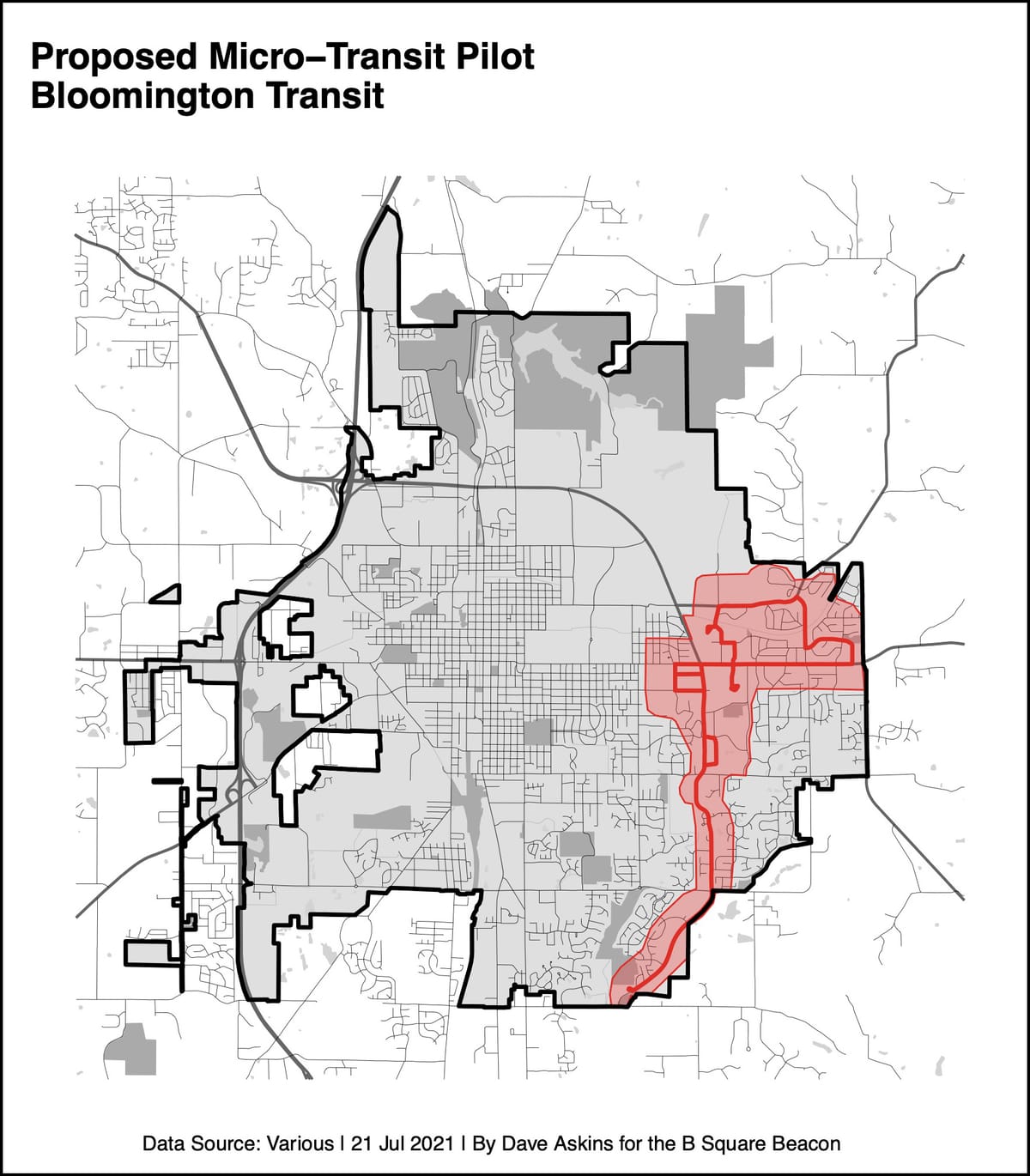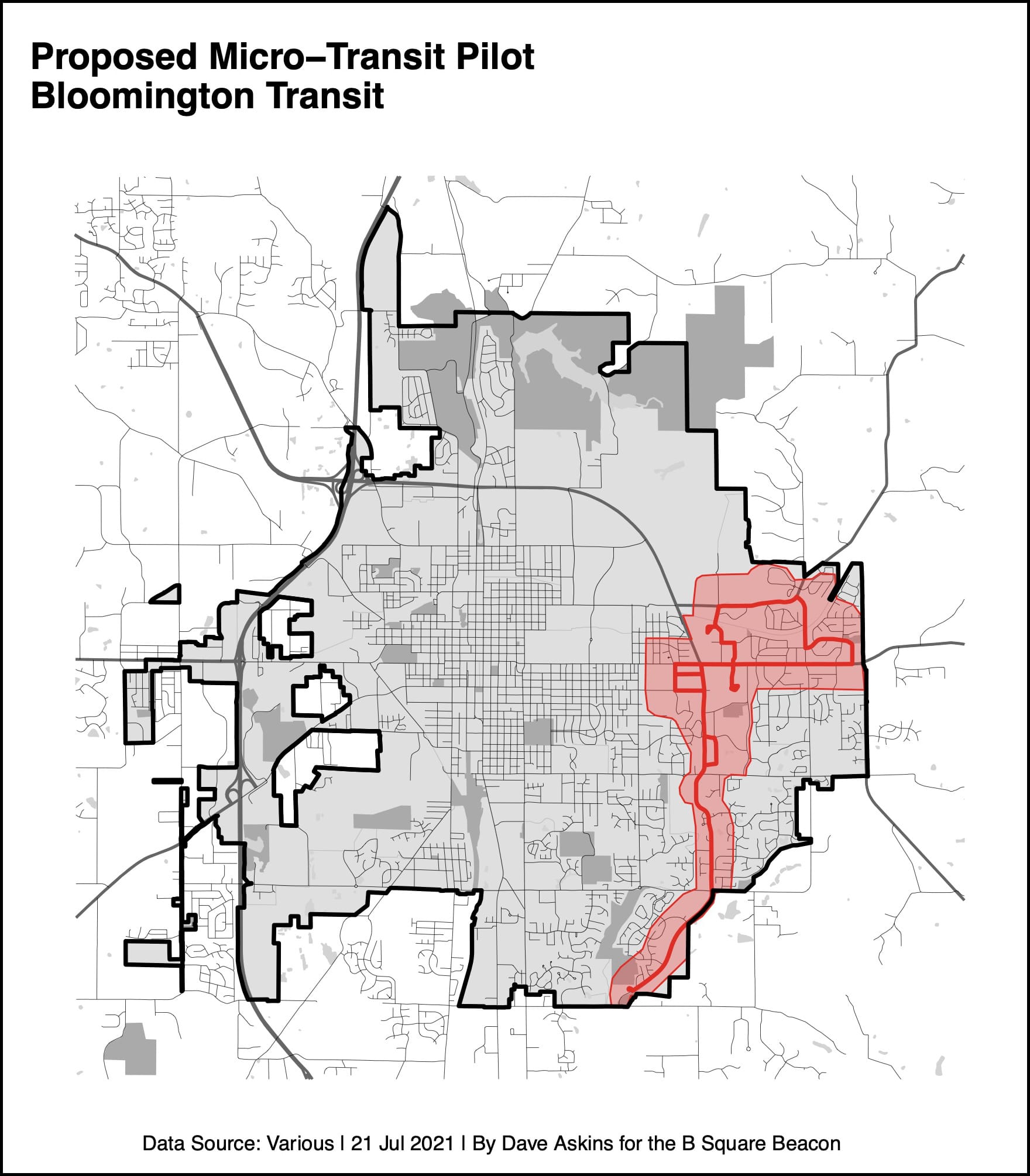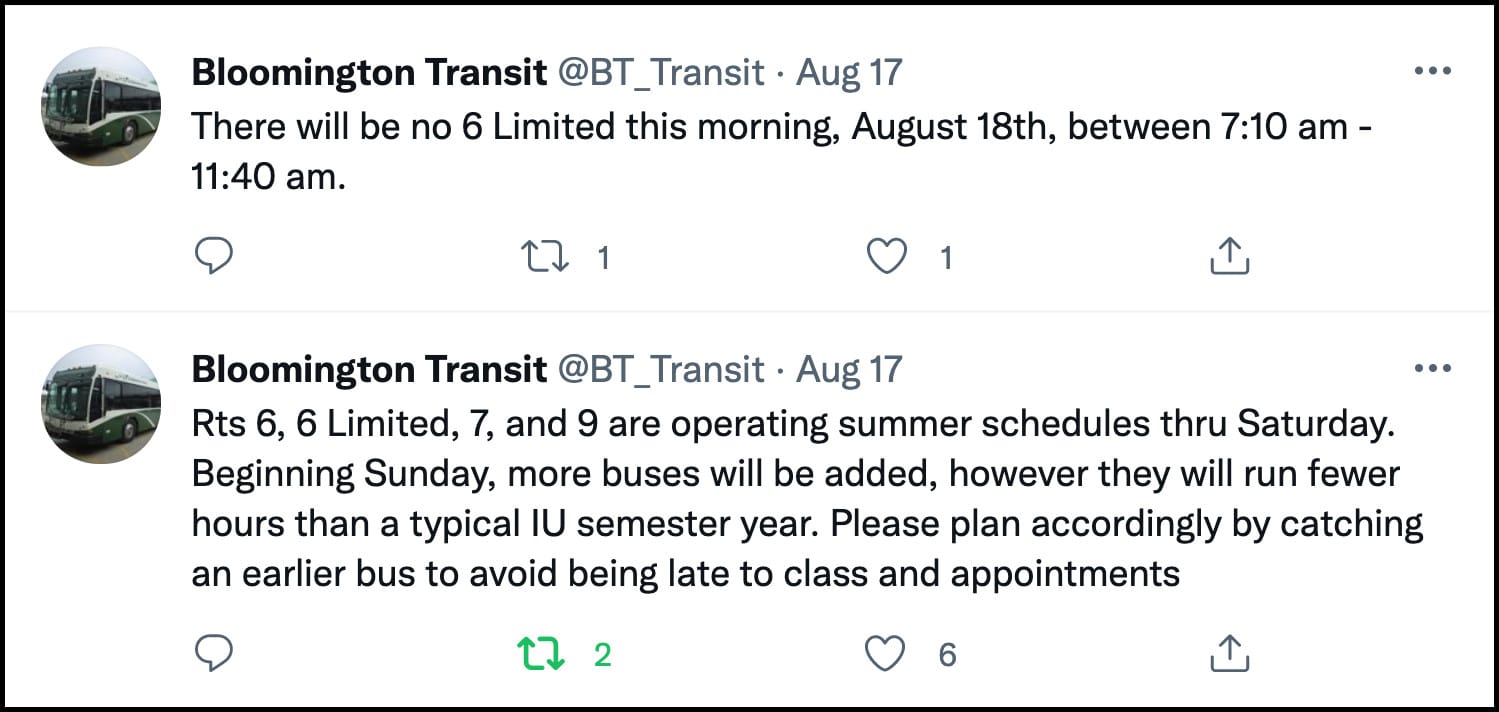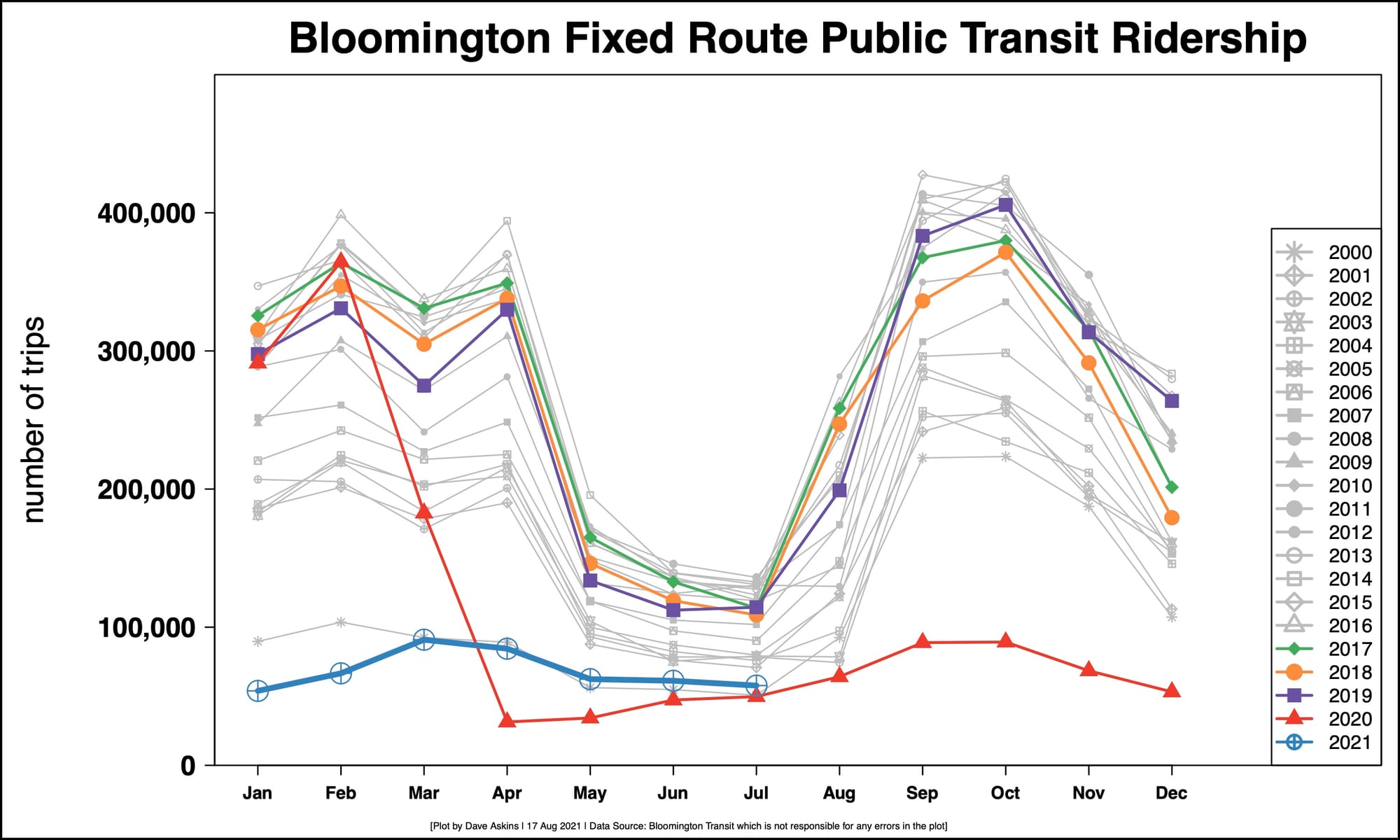Bloomington Transit OKs side letter with drivers union: Pay bump, $1,000 essential-worker bonus




At its Tuesday meeting, the five-member Bloomington Transit board voted to approve a side letter agreement with AFSCME Local 613, which is the drivers union.
The agreement is hoped to aid recruitment of new drivers—BT is currently short by about a dozen. The agreement is also hoped to reduce a recent spate of cancelled bus runs, chronicled on BT’s Twitter account, due to lack of drivers on the overtime list.
The side letter increases starting pay for drivers by $2 an hour—from $16.32 to $18.32—and gives those with more experience a $1,000 essential-worker bonus.
The context of the phrase “essential worker” connects to the COVID-19 pandemic. Drivers were still expected to keep the buses running, even though the number of service hours was reduced.
To cover the cost of the essential-worker bonus, BT will use money it received through the federal CARES (Coronavirus Aid, Relief, and Economic Security) Act.
The side letter approved by the board also requires at least 12 drivers to sign up for the overtime list. The letter also clarifies the wording of the existing collective bargaining agreement (CBA) about how overtime can be mandated and the right to refuse a withdrawal from the overtime list.
The side letter is still contingent on a vote of the union membership.
A question raised by BT board members during the meeting raised the specter of union drivers not abiding by the overtime list requirements after they banked the bonuses.
Responding to that concern was president of the AFSCME Local 613, Jeff Cisneros, who sent the BT board a chat message in the Zoom interface of the hybrid meeting.
Cisneros wrote: “The consequences of a work stoppage are outlined in the CBA. The position of the Union is that we will not violate the CBA or sabotage it. None of this is to our mutual advantage.”
The remark from Cisneros gave the board the kind of assurance it appeared to be hoping for.
Board member Doug Horn did not think it was appropriate to try to tie the payment of the bonus to future performance on the overtime list. Horn said, “I would just like to state that regardless, I think that the $1,000 essential worker bonus is appropriate, set aside from performance on the overtime language.”
Horn continued by saying that the essential worker bonus should have been paid sooner: “I personally feel that we should have recognized that earlier. I’m grateful that we’re recognizing it now.”
The current CBA runs just through the end of this year. Based on discussion at Tuesday’s board meeting, at least three rounds of collective bargaining talks are scheduled, starting in September.
Joining Tuesday’s meeting on the Zoom interface was John Bartosiewicz, who will be helping BT with the CBA negotiations. Bartosiewicz’s services are provided as part of BT’s agreement with RATP Dev, the transit management company that also provides BT with its general manager.
The current BT general manager is Lew May, who will be retiring at the end of September after 22 years of service.
The next general manager, picked by the BT board at last month’s meeting, is John Connell, who is now operations manager for the public bus system in Lafayette and West Lafayette, Indiana.
The handoff from May to Connell will take place during the course of the 2022 budget process. At Tuesday’s meeting, the BT board approved its $15.1 million 2022 budget, which will be presented next week to the Bloomington city council as a part of a series of presentations from city departments.
BT is not a city department—it’s a standalone corporation—but the city council has to approve its annual budget.
The final adoption of ordinances related to Bloomington’s budget will be voted on by the city council in October, which is after Connell is set to become general manager for BT.
The 2022 budget approved by the BT board on Tuesday was, for at least one line, $100,000 lighter on the revenue side compared to the draft budget presented at last month’s board meeting.
Based on the initial ridership numbers, after BT resumed fare collection in July, the anticipated revenue from the $1 collected per ride is now projected to be $400,000, instead of the $500,000 figure in the draft budget.
In pre-pandemic times, the revenue from passenger fares was around $600,000 a year.
In July year, BT gave 57,746 rides on its fixed-route buses, which is about half the number rides in July 2019. This year’s July numbers reflect about a 15-percent improvement over July last year, the first year of the pandemic.
In other significant business handled by BT board members on Tuesday, they voted to put off the implementation of a pilot program to replace Route 8 with on-demand service through a provider like Uber or Lyft.
On that approach riders would still pay the regular $1 public bus fare, and BT would make up the difference, up to $15, of the actual cost for the ride.
In his presentation to the board about the on-demand proposal, BT special projects manager Zac Huneck reported that 70 percent of frequent Route 8 riders had an unfavorable view of it.
The board’s decision to put off the proposal was based in part on the fact that Connell will be taking over in October as general manager, so that it’s a bit like a “lame duck” situation. The board wants to make sure it’s a pilot project that Connell is comfortable implementing.
Connell has some experience with the basic concept of on-demand public transit service, because the Lafayette/West Lafayette transit system has implemented that kind of service, using Via Transportation, not Uber or Lyft.




Comments ()